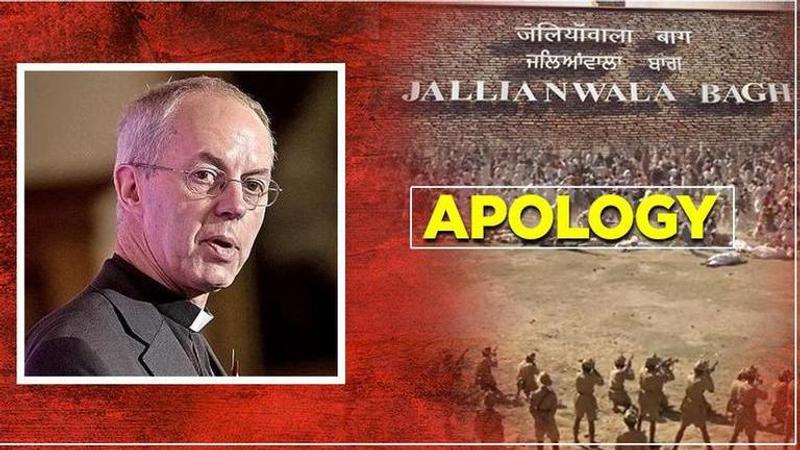Published 11:40 IST, September 11th 2019
Archbishop of Canterbury apologises for Jallianwala Bagh Massacre
The Archbishop of Canterbury Justin Welby on Tuesday visited the Jallianwala Bagh memorial and personally apologised for the Jallianwala Bagh Massacre

The Archbishop of Canterbury Justin Welby has tendered a personal apology, on Tuesday, for the Jallianwala Bagh Massacre that took place on 13 April 1919 in Amritsar. The Archbishop visited the Jallianwala Bagh memorial and prostrated himself the floor of the memorial to pray for the victims. The Archbishop was on a ten day visit to India, visiting several churches to "learn and listen to the Christians in India".
The Archbishop's Apology
"I am so ashamed and sorry for the impact of this crime committed here. As a religious leader, I mourn the tragedy I see here," Welby said. When asked whether he would seek an apology from the British government, Welby said that he has been clear of what he feels, and his view would be broadcast in England.
Welby further added, "I cannot speak for the British Government." He said that he wasn't a UK Government official, however, he could "speak in the name of Christ." He further went on to add “Learning of what happened, I recognise the sins of my British colonial history, the ideology that too often subjugated and dehumanised other races and cultures."
"The past must be learned from so nothing like this ever happens again,” said Welby.
READ | UK PM Theresa May fails to apologise again for Jallianwala Bagh massacre, expresses "deep regret"
About the Jallianwala Bagh Massacre
The Jallianwala Bagh massacre took place on 13 April 1919, when troops of the British Indian Army under the command of Colonel Reginald Dyer fired machine guns on the unarmed protesters protesting for independence and pilgrims who had gathered in Jallianwala Bagh in Punjab's Amritsar on the occasion of Baisakhi. The gruesome attack killed more than 300 and injuring 1,200.
No apology by the British Government
The United Kingdom has till date not tendered an absolute unequivocal apology for the gruesome killings of the unarmed protestors by the British army 100 years back.
In April, on 100th anniversary of the massacre, then British Prime Minister Theresa May had said that the United Kingdom deeply regrets the massacre and called it a "shameful scar" in British-Indian history. Though she expressed her regrets while speaking in the British parliament, she fell short of a formal apology.
Updated 14:33 IST, September 11th 2019




